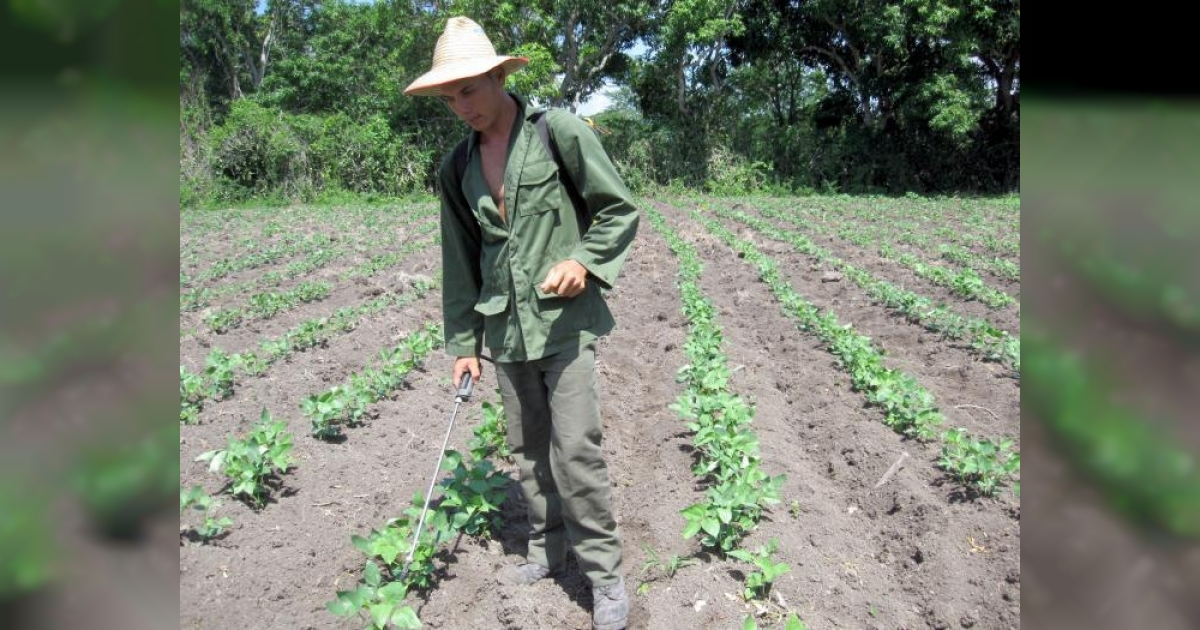
Plant Health specialists in the province of Pinar del Río have just issued an alert to farmers in Vueltabajo with the aim of controlling the spread of a pest that is present in the country and mainly attacks beans.
The insect in question, of the speciestrips, affects the flowering of the plants, causing them to fall prematurely without fruiting, and if they do, the pods are deformed, with lower quantity and quality of grains.
Yoel González Pérez, head of the Plant Health Department of the Provincial Delegation of Agriculture, explained to a local media that the pest is already present in all the provinces of the country, and that it is difficult to control.
"The literature states that an uncontrolled expansion of these insects can reduce crops by up to 30 percent," the specialist said.
That is why "the structures of the business, state, cooperative and peasant sectors must take the pertinent measures to exercise their control in order to avoid major damage to the plantations," he told the newspaper.Guerrilla.
In the Vueltabajero territory, specimens have already been found in the municipality of Consolación del Sur. The province's experts are currently working on tracking and detecting the pest, so they ask the farmers of the territory to, in the event of any suspicion, communicate in a timely manner with the specialists at the nearest Plant Health Station, in order to to contribute to monitoring the pest.
According to Javier Torres Álvarez, from the Plant Health Department, among the viable alternatives to contribute to the control of this pest is the use of some biopesticides such as tabaquina, a compound manufactured industrially or produced by the farmers themselves, by soaking and leaving ferment tobacco residues in water with lime.
This variety of neopteran insects not only live in bean plantations, but also proliferate in the middle of the weeds or gardens, since they are attracted by the colors of the flowers.
The impact of this type of insects occurs at a time when the health authorities of the Ministry of Agriculture prioritize combatingthe giant african snail, another invasive species whose spread has not been stopped.
What do you think?
COMMENTFiled in: